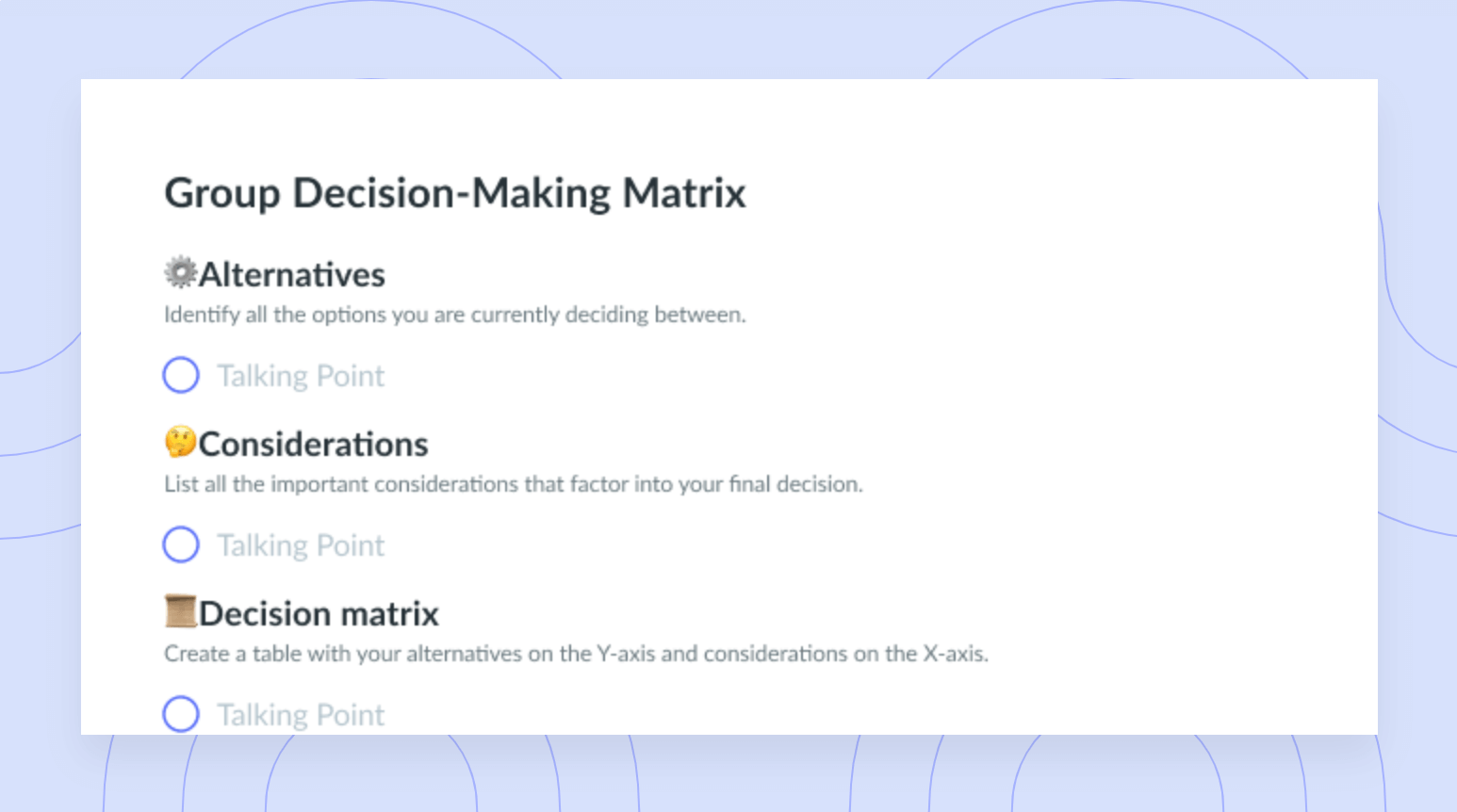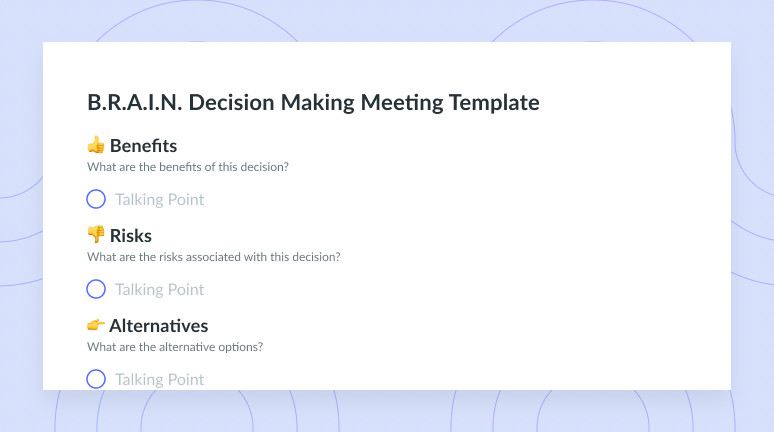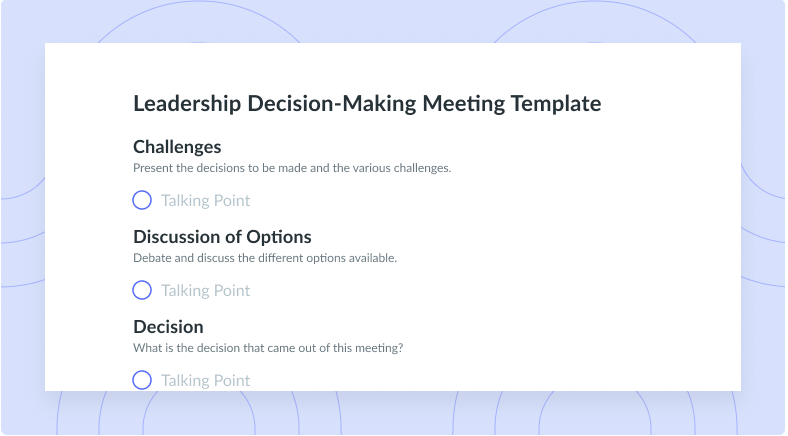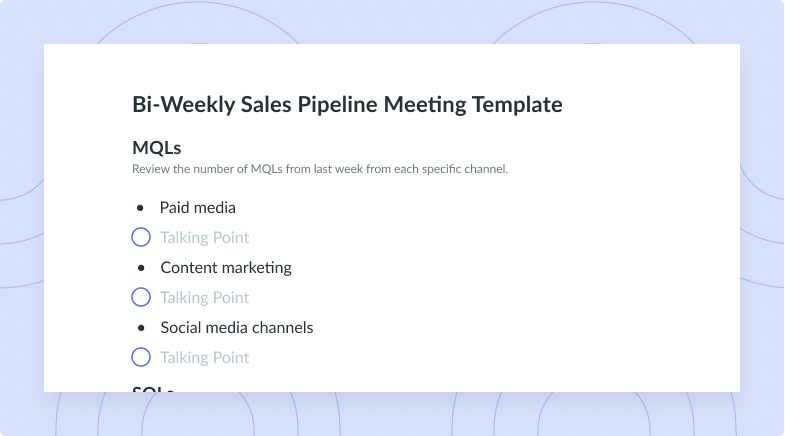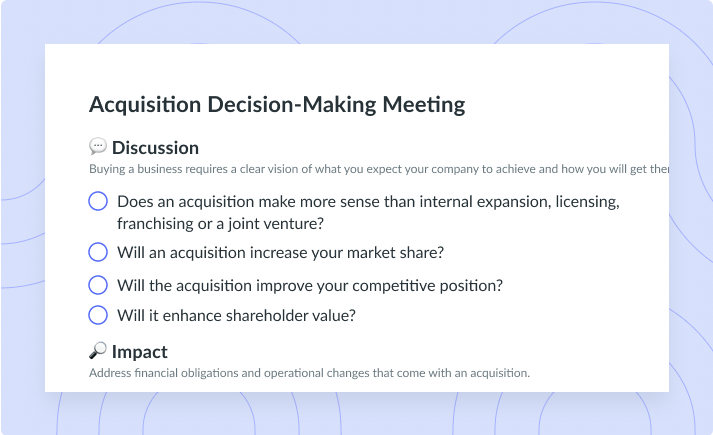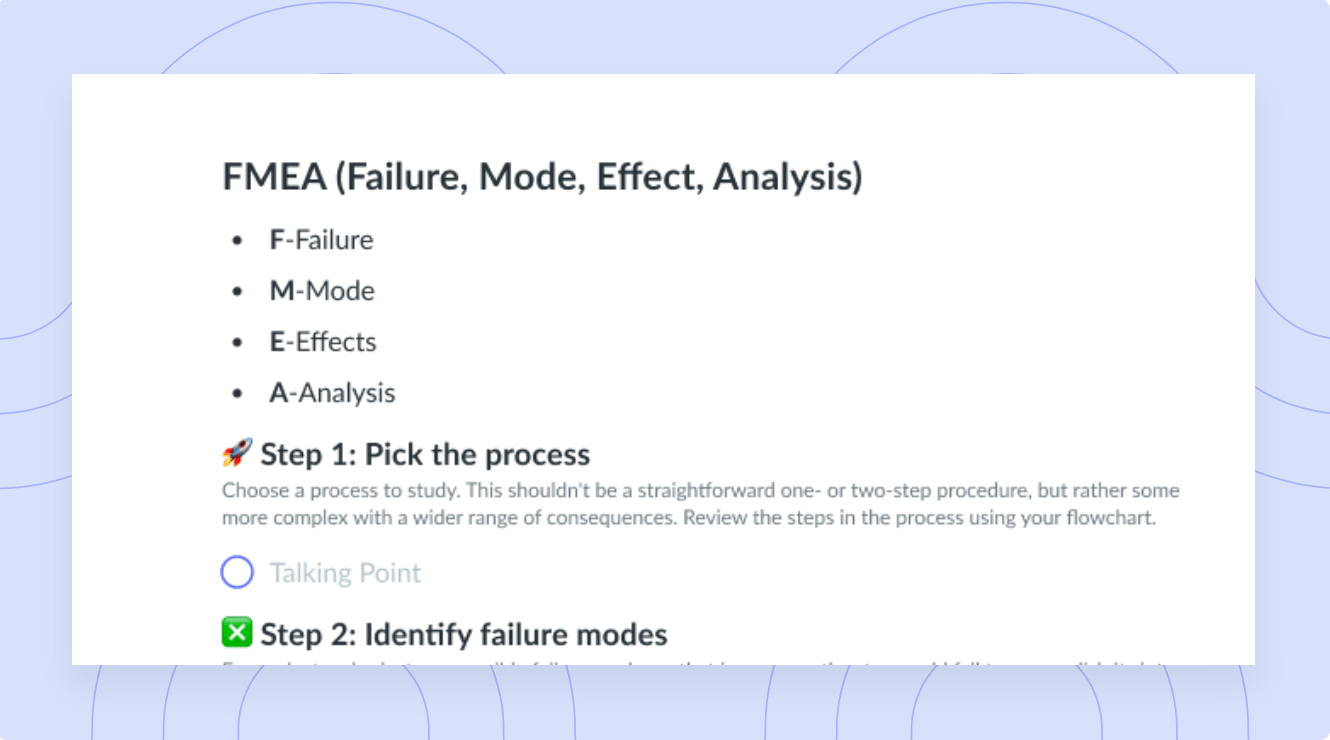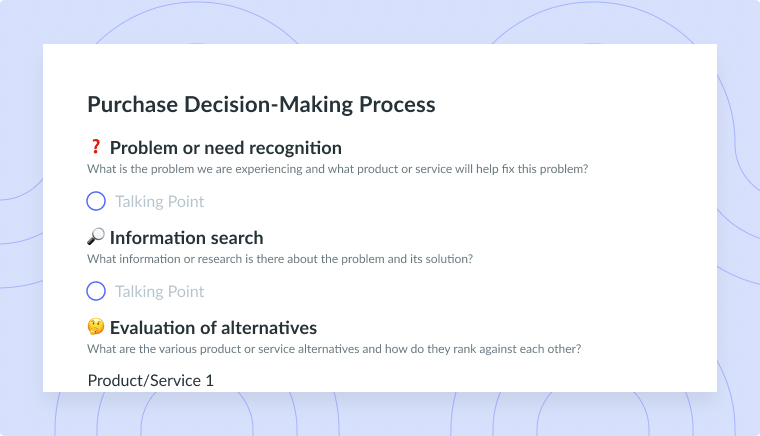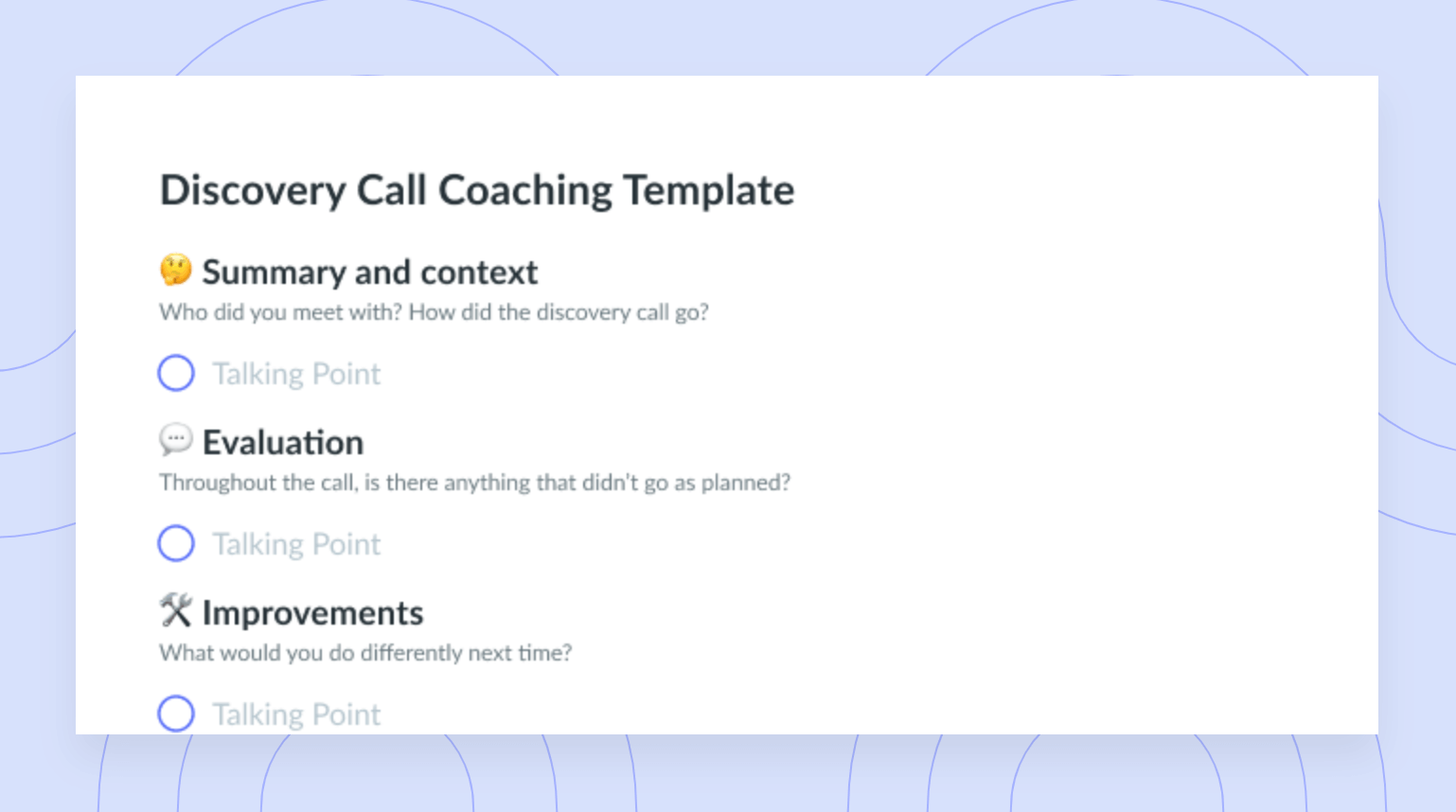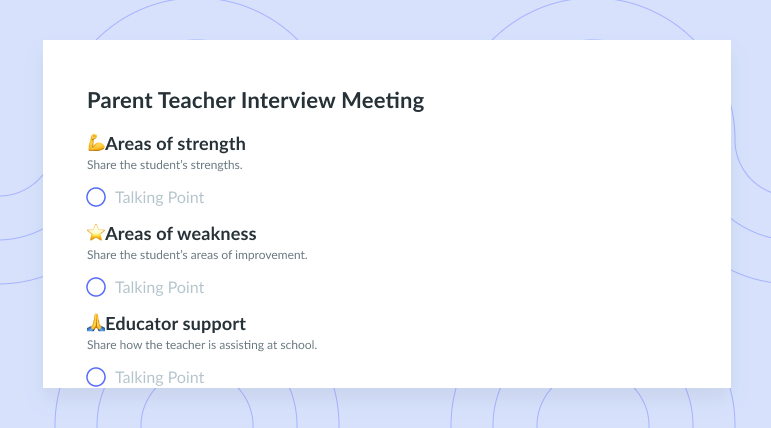9 Ways to Beat Decision Fatigue
Decision fatigue is a type of burnout that can make us feel less motivated and excited to work, but its negative effects can be mitigated.
In 2000, two psychologists conducted what we know today as the “The Jam Study.” For the study, on two separate occasions, the researchers went to the same grocery store and offered shoppers to taste test various jams, and then later asked the shoppers if they’d be interested in buying them. On one day, the psychologists offered 24 varieties of jam. The next day, they offered only 6.
The result? On the day the shoppers were only offered 6 varieties of jam, sales of jam were significantly higher.
So what do we learn from this? More is not always better. In fact, minimizing the decisions we make during our day may even make us more productive and likely to reach actionable results.
- What is decision fatigue?
- Why decision fatigue happens
- The negative effects of decision fatigue
- 9 ways to beat decision fatigue
- Free decision-making meeting agenda template
What is decision fatigue?
Decision fatigue is the mental burnout that occurs when people are required to make too many decisions. If you think about your day-to-day life, you’ll notice that you make a lot of decisions, ranging from small ones (like if you want fries or salad on the side) to big ones (like whether to hire or fire an employee). When big choice-making takes over our lives, we begin to feel overwhelmed and less motivated, and we may even begin to push away from the responsibilities that require us to make these important decisions.

Beat decision fatigue
Make decision-making easier with collaborative meeting agendas that everyone can contribute to. Plus, keep track of previous decisions in one place by looking at past meeting notes. Try a tool like Fellow today!
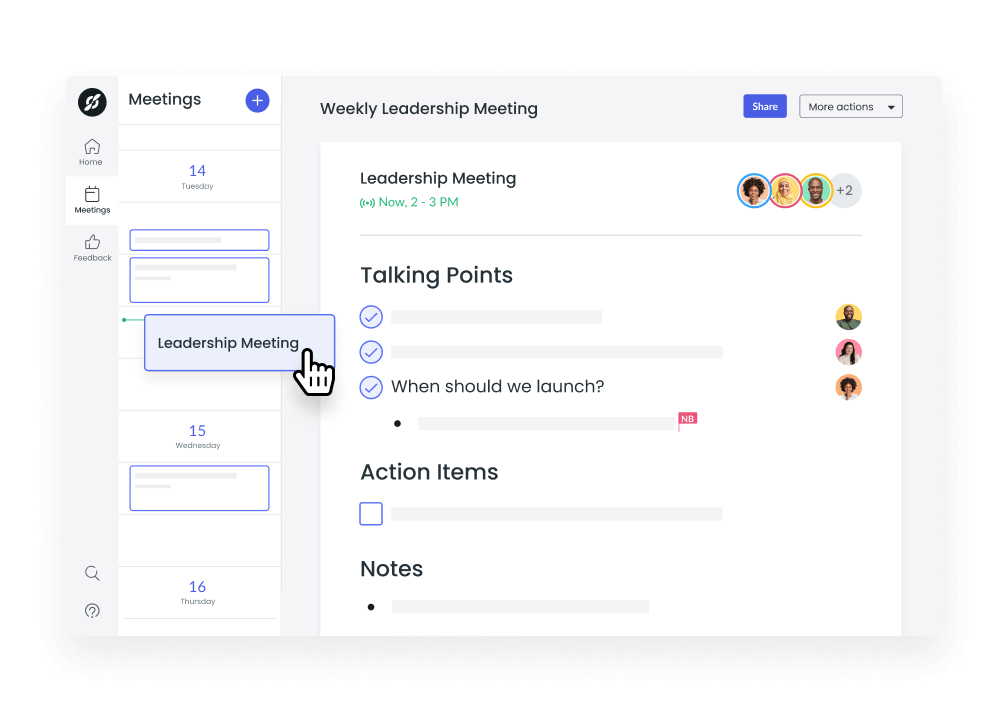
Why decision fatigue happens
Similar to other types of burnout, decision fatigue happens either when we’re asked to make too many decisions at once, the decision is “too big” for one person, or, over time, we’re repeatedly responsible for a lot of decision-making. We eventually lose motivation or passion for the choices that we ultimately make. Perfectionists, high-achievers, and those who experience anxiety are especially prone to decision fatigue over time, as they are more likely to be concerned about reaching a specific outcome and may spend more time stressing over decision-making as a result.
The negative effects of decision fatigue
- Feeling overwhelmed. When there are too many choices to make, it’s easy to feel like you’re drowning in responsibility.
- Becoming more distant from your responsibilities. Feeling overwhelmed or isolated in your decision-making responsibility may make you less inclined to want to do the related work.
- Feeling drained by the thought of work. Over time, your body recognizes the stress that comes with making too many decisions and can become tired more easily.
- Experiencing imposter syndrome. As our bodies get worn down by stress, feelings of anxiety and imposter syndrome may rise. You may even be questioning your own decision-making capabilities.
- Being careless. If you’re faced with too many decisions, you may begin to care less about each one. This can put projects and teams at risk.
9 ways to beat decision fatigue
- Prioritize sleep
- Set realistic expectations
- Pace your decisions
- Seek advice
- Create a routine
- Make important decisions early in the day
- Time block decision-making time
- Don’t second guess your decision
- Delegate decisions you don’t need to make
1Prioritize sleep
Prioritizing sleep is the best and simplest way to beat decision fatigue. Focus on getting the recommended 7-9 hours of sleep per night and don’t shy away from a small afternoon nap throughout the day if you feel you need it. Practicing great sleep hygiene helps you maintain mental wellness, boost your immune system, and think more clearly.
2Set realistic expectations
How long you’ve been experiencing this type of burnout will determine how long your recovery might take. In some cases, burnout recovery may even take from one to three years.
You need to know your own body and be able to identify when you’re feeling stressed, getting overwhelmed, or shying away from work responsibilities so you can start mitigating any decision fatigue that might be coming on.
Setting realistic expectations for your decision-making capabilities within your team will also help minimize the possibility of future decision fatigue.
3Pace your decisions
If you’re being faced with a lot of decisions at once, slow down the speed at which you’re making them. Allowing more time in your schedule to think critically about the choices you’re making will ensure they’re better informed, and will lift the stress that would have resulted from a panicked decision off your shoulders.
If you’re struggling to decide which decisions to make first and which to push off, consider integrating a priority system into your to-do list. Mark action items as either “urgent,” “high,” “medium,” or “low” priority. Typically, urgent decisions need to be made within a day, and low priority decisions don’t need to be made for a few months.
4Seek advice
Have your team or manager help with decisions during meetings using a tool like Fellow, which offers collaborative agendas and allows users to mark tasks with tags like #decision to help you keep better track of everything on your plate. If you’re using a prioritization feature for your decision-making, consider getting feedback from your team or manager on the timeline and requirements that would help you determine each item’s priority level.
5Create a routine
Decision fatigue is a lot more likely if your schedule is sporadic, changes frequently, or lacks routine. Then, in addition to the stress of making important choices, you’re also undergoing the stress of a day for which you’re not prepared. Establishing a routine, at least for some parts of your day (for example, a morning or evening routine) will take away one element of stress and save more of your mental capabilities for making important decisions.
6Make important decisions early in the day
According to an article by the Harvard Business Review, the early bird really does get the worm. In the morning, your mind is more alert and agile, which makes you a better decision maker. You have a fresh slate of uninterrupted mental power to tackle important decision-making. In turn, your ability to make better decisions can improve your overall job performance and help accelerate your career!
If you’re faced with an important decision later in the day, consider how high this decision ranks on your priority list. Does it need to be made now? Or, can it wait until tomorrow morning when you’ve had more time to think and your mind is clearer?
7Time block decision-making time
Time blocking is a schedule management approach where you block out sections of your calendar to complete specific, uninterrupted tasks. Time blocking is a great way to add a bit of routine into your schedule, and you can take it one step further by blocking out the first hour of your day for important decision-making time. Now, you knock out two birds with one stone on your way to beating decision fatigue and maximizing your productivity power.
If you’re a senior executive, project manager, or someone who makes frequent decisions throughout the day, you may also consider an afternoon decision-making time block that allows you to react more quickly throughout the day. This time block can also be used for conducting research, creating a pros and cons list, or using any other technique that may help you reach an appropriate conclusion.
8Don’t second guess your decision
This requires somewhat of a “what will be, will be” mindset. It can take enough thinking time, research, and stress to come up with the average big decision. Trust in yourself that you did your due diligence and that you know what’s best for the project or team. Especially if you’re working on a series of smaller decisions, consider how serious the impact of each decision is before stressing over one option versus another. If the impact isn’t very different, then you can feel comfortable making a decision that will turn out alright either way.
9Delegate decisions you don’t need to make
Odds are, you’re working in a great team of fully capable people just like yourself. Trust them! Don’t be shy about delegating tasks that aren’t aligned with your role, or about which someone else might already be more informed. Delegating can be especially difficult for perfectionists, as they want to be highly involved with their projects and see through to a “perfect result,” but if this sounds like you, try delegating small decisions first and work your way up to bigger ones.
Free decision-making meeting agenda template
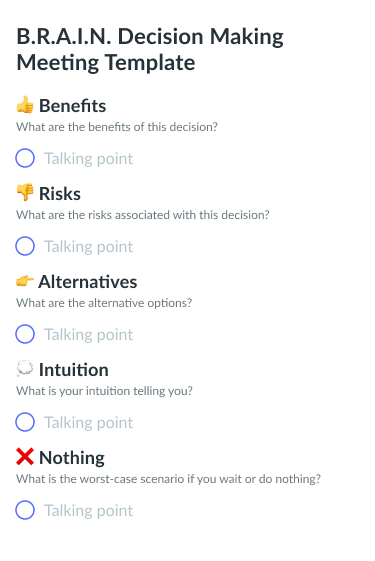
Parting advice
Prevention is key to preventing decision fatigue. Practice slowing down your process, actively prioritizing incoming requirements, and prioritizing time to rest. When the negative effects of decision fatigue set in, it’s important that you don’t make the decision about making decisions difficult in itself. If you’re feeling like you’re experiencing decision fatigue, do what feels best to you, seek help, and don’t be afraid to pass off some decision-making responsibilities to others around you who are just as qualified to do the job.









